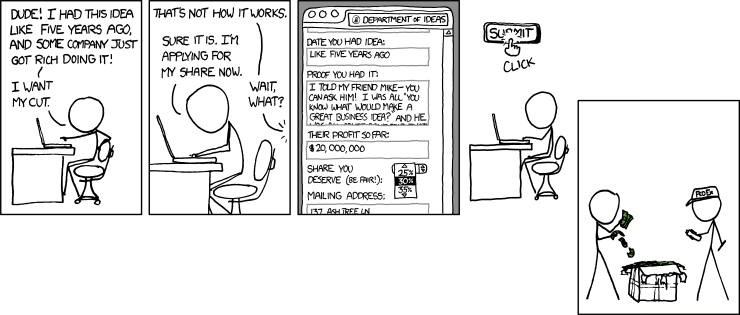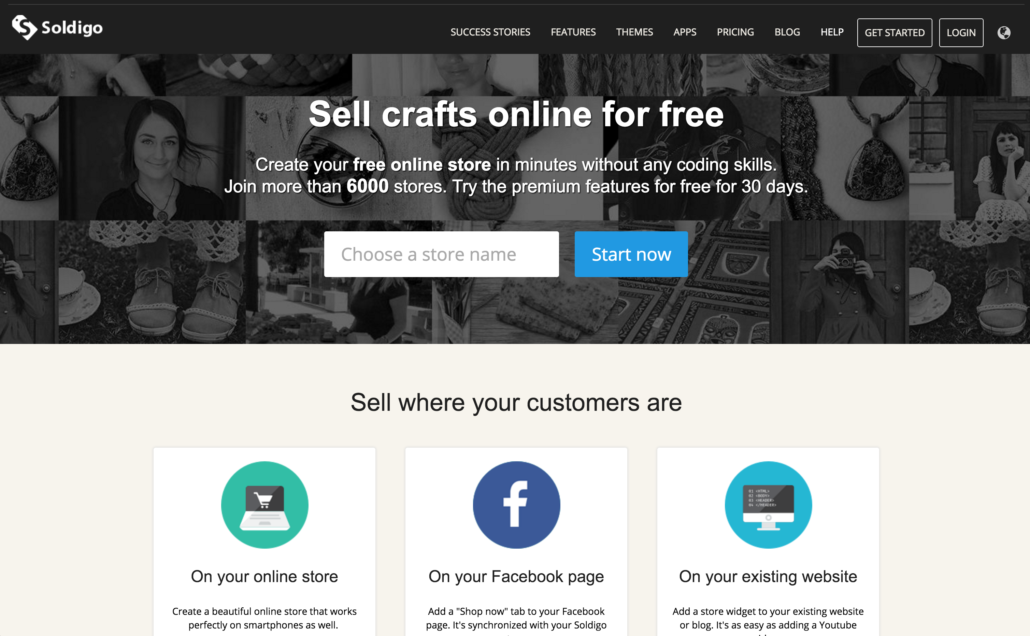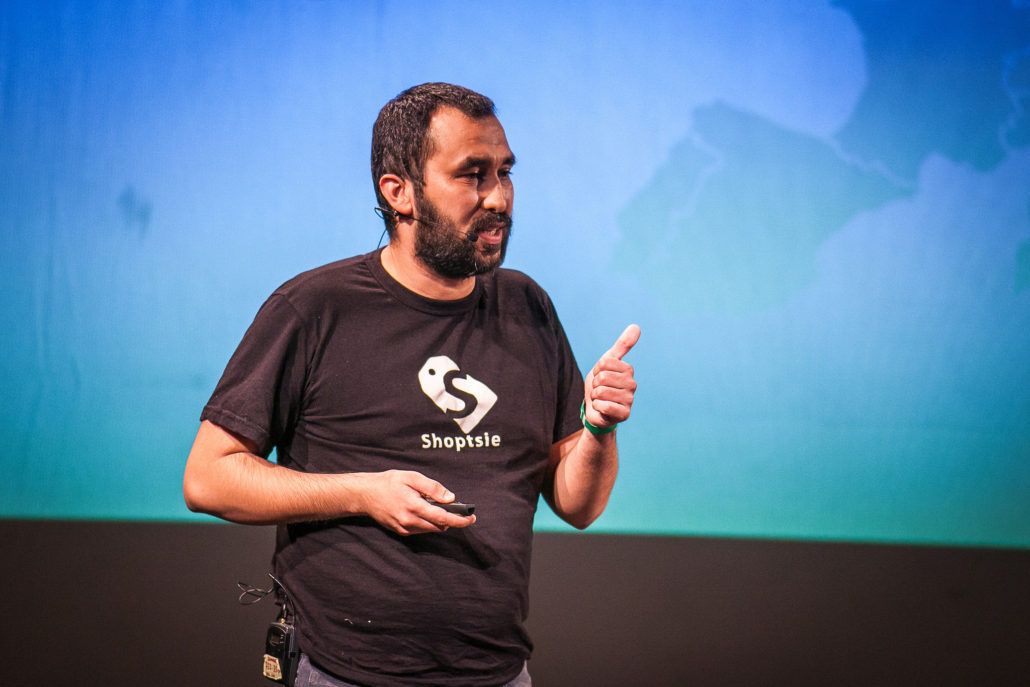How to Spot a Startup Tourist
Applications for StartupYard’s second round of acceleration in 2016 have closed. Now, we dig into applications, looking at ideas, founders, and how founders talk about and express their ideas.
What we find is always enlightening, but also always an evolving challenge to parse and process.
The Idea vs. The Team
As I’ve written about before, it’s very hard to tell a lot about the scope and clarity of an idea from a narrowly focused written application. An idea that seems obvious might not be; an idea that seems obscure might in fact be a game changer. On the other hand, it can be easy to tell a few specific things about a person.
The way people talk about their ideas can reveal things about them as people. Is the person funny? Are they self-aware? Do they project confidence? Do they display arrogance? These qualities can be recognized in the way a person writes, and in what they choose to say.
But ideas are different. They are open-ended. They bring up questions rather than answering them. Great ideas are not always obvious at first glance, but can become “obvious” over time, after deep reflection and interaction. There is always a danger that a mentor projects their own hopes onto startup founders; thinking they can shape the team around their enthusiasm for an idea. That can create a disconnect between the motivation of the mentor, and the motivation of the team itself. Success and successful mentorship really ends up being about the quality and (forgive the cliché), passion of the team.
Startup Tourism
So what is a Startup Tourist? Put simply, it’s a person who wants to have a startup more than they want to actually do whatever it is that startup does. Startups, if successful, grow into regular companies, with all the responsibilities and daily obligations that come with them. Tourists aren’t interested in that type of success. They’re more interested in the status that running a startup confers on them– the appearance of success, more than the substance behind it.
Experience has shown us that some amazing startups don’t seem that amazing on paper. The passion may be obvious, but the idea itself may not be. Having difficulty expressing what you do, doesn’t mean you don’t know what you’re doing, though. And a big part of our job is to help square that circle, and make startup founders good at talking about their work. We always have to keep that in our minds when reading applications: lack of clarity is not a killer, but lack of passion and sincerity are.
Tourists Can Be Great Communicators
We’ve reviewed, collectively, around 800 applications for StartupYard within the last 3 years. The vast majority of those are clearly not a match for us. Most are poorly presented, and probably also not very well developed ideas.
That’s ok though. We accept around 3% of all applicants, so we expect most not to qualify. And the only way a startup founder can learn is by trying, so we laud those who do apply, no matter the outcome.
What we worry about most are the “tweeners:” the ones who appear to offer a lot of promise, because they are usually very good at talking about their ideas. They have the ability to project passion, but just enough self-awareness to avoid being seen as arrogant or full of bluster. These applications are more polish than substance, but they hide their lack of substance extremely well.
As Paul Graham of Y-Combinator famously said: these are the founders who live by “the rules.” They learn the system (such as it is), and how to talk and act, in order to appear to be what they wish they were- promising startup founders. These founders often know the “rules” better than we do, and well enough to convince almost anyone at first glance that they belong, even if they don’t actually have the passion they need to build a successful business.
And that works for a few meetings. Maybe a few weeks. But eventually, the results don’t match the apparent promise, and the Tourist becomes more obvious.
One of my favorite movie scenes is from a Martin Scorcese film called The Departed (Spoilers ahead).
In the film, a police Captain (played by Martin Sheen), asks a young police Cadet and misfit (played by Leonardo DiCaprio): “Do you wanna be a cop? Or do you wanna appear to be a cop?” This is a question I would love to ask many startup founders I meet. Of course, the irony in the film is that the Captain had, moments before, congratulated a new sergeant on his promotion in the department- and that sergeant (played by Matt Damon), is a mole working for organized crime. The best of us can always be fooled, especially when we are shown what we want to see.
The dream is of course to find a founder who is really good at communicating *and* has a lot of genuine passion for their ideas. The genuine article, in other words. That’s the stuff unicorns are made of, but it is rare stuff indeed. The ugly stepchild of the unicorn founder is the Tourist- the applicant who knows how to play the game, but doesn’t know how to win it.
Spotting A Tourist

There are certain things that tourists do to tip their hand, and reveal that their motivations are more complicated than a simple passion to be great at something nobody else can or has done before.
So, here’s my (totally unscientific), list of signs of Startup Tourism. In no particular order:
-
Knows the Lingo… a little too well
Startup Founders learn about seed funds, VCs, valuation, down rounds, convertible notes, equity dilution, and the rest of it as they go along. They have to. These are things you have to become familiar with if you want to succeed as a high growth startup, but it isn’t necessarily something you need to know much about before you actually start. At the beginning, an idea and a team that cares a lot about that idea can get a startup pretty far with minimal wisdom about the intricacies of fundraising and corporate structure.
Moreover, a team that isn’t focused on these “status metrics” is more likely to be focused on what’s really important- which is building enormous value for their customers.
Tourists tend to know the startup lingo a little too well for their own good. This can reveal a focus on the trappings of success, rather than the work involved in achieving it. That’s not always true, but sometimes it is. Good startup founders can always become good at this stuff because they have to. It’s a means to an end.
A Tourist is more likely to ask a lot of intricate questions about funding and corporate structure, but to do so well ahead of the time when knowing these things is particularly relevant. The tourist is fixated on valuation, instead of value. On “benchmarks” instead of forward progress. So focused on appearing to be in control, a Tourist reveals that they are not focused on doing what their startup actually promises to do.
-
Asks “How?” Instead of “Why?”
Mentoring startups often involves throwing a lot of things against the wall, and seeing what sticks. It’s the startup founder’s job to talk to mentors, and to then try and process what they’ve heard, and find out what’s really relevant for them. That means listening to people you might not completely agree with, and then checking what you’ve heard with others, to see what they have to say. It also means listening to people you agree with, and then digging into your own reasons for agreeing with them. It’s about jumping into a swamp of conflicting opinions, and trying to make sense of it all. It’s messy work. It’s frustrating, and it needs to be.
Mentorship is more valuable when the startup founders are asking searching questions. “Why do you think we should do this? Where can I learn more about that? Who should I ask about this?” These questions produce more work for the founders, who have to follow up on what they’ve heard.
When a founder more often asks: “how can I do that?” or “How would you do this?” These are not searching questions, but rather invitations to do the founder’s work for them. They don’t open up new avenues of thinking, and are not so open-ended. It’s like the student in university who asks the professor how many pages the term paper has to be. That’s not information that helps the student perform better and be creative, rather it’s information that helps the student do what is expected. It helps you get a grade, but it will not help you actually learn anything.
A favorite professor of mine once answered by saying: “as many as is necessary.” I took that to mean that the professor would know very well whether the actual ideas a paper contained were worth the number of pages actually consumed.
Searching my memory, I cannot recall a single instance in which a founder who has gone on from StartupYard to successfully raise seed financing and build a growing business asked me how to do anything. But I can recall many instances in which those same founders asked me why they should do one thing, or another. And many more instances when they asked for my feedback on something concrete. Opinions and feedback are generative. Building on ideas and being creative are what matter. There are no gold stars, and no grades in real life.
Figuring out how to do something can be easier than figuring out whether or not you should actually do it. Founders who ask why, are much more likely to get useful answers than the ones who ask how.
-
Talks about Opportunities Instead of Challenges
A few weeks ago, I heard a very funny story about one of our investors. He was a jury member at a startup competition, which is something startup investors end up doing a fair bit. A startup had stated something like: “the market is worth an estimated $100Bn, we aim to capture 5% of that, and if we do, we will be worth over 5Bn in recurring revenues.”
That’s a pretty prototypical tourist point of view. The investor in question had his own brilliant response: “why 5%? Why not 8%? Why not 15%” The implication should be clear enough- the size of the market can be impressive as hell, but the actual dirty work of building a business is not as sexy as talking about money. If you’re focused on getting a slice of the pie, then you’re probably not thinking about building a whole new market. You’re probably not interested in changing the way things work, but rather making the way things work, work for you.
And if the thing that matters most is the market opportunity, then what are you really passionate about? If you’re smart and you work hard, you can make money at a lot of things. You don’t have to found a startup to do that.
The founder that is fixated on market opportunity is less likely to be laser focused on creating value for the people who will actually pay for whatever they provide. That focus on creating inimitable value is everything to a successful and disruptive startup. It’s not about trying to grab a piece of an existing market, but about creating a new market nobody else is aware of yet.
Much more interesting are challenges. What does the market not yet provide, and why is that badly needed? Why couldn’t the market provide it before now? What problem is just waiting to be solved? Disruptive startups tackle the status quo, and change the way people and businesses and the world around them works on a more basic level. They make things that are not just faster and cheaper and prettier, but actually different.
I see this problem as one in which the startup founder is too focused on what they think investors want to hear. They will say their market is growing, and hope that the mere implication of opportunity is justification enough to get funding for themselves, regardless of what they’re actually doing.
When making a case for itself, a startup can be much better served by talking about what hasn’t been possible before, than about what has already been accomplished by others, or things that would happen whether the startup existed or not. Yes, for example, the mobile gaming market may grow by 40% in the next two years, but that’s an argument in favor of investing in that market, not necessarily for entering that market with a specific product. The product itself needs to make sense, and the fact that it’s an expanding market is, perhaps, a bonus.
Yet I hear this justification thrown out at virtually every pitching event I attend, over and over again. “The market is huge, and we’ll be a part of that huge market.” Yes, and?
- Puts Their Fate in the Hands of Others
It can be as simple as this- a Tourist is a startup founder who is waiting for something. Waiting to get into an accelerator. Waiting to attract a VC. Waiting to quit their job. Waiting to be noticed. Waiting for the magic bullet.
This is part of what makes selecting startups so hard for an accelerator. We want people who are ready, but not people who are waiting. We ask startups when we first interview them: “What will you do if you aren’t accepted here?” The Tourist will answer: “I’ll try again,” or “I’ll apply to another accelerator,” or, “I’ll stay at my job for now.”
A startup founder who is passionate about what their doing, and really believes in it, is more likely to say: “I’ll just keep going,” or “I’ll think about why I didn’t make it, and decide what to do next.” The genuine founder is already thinking ahead of the next failure, looking for the next challenge, and not waiting for success to strike them.





